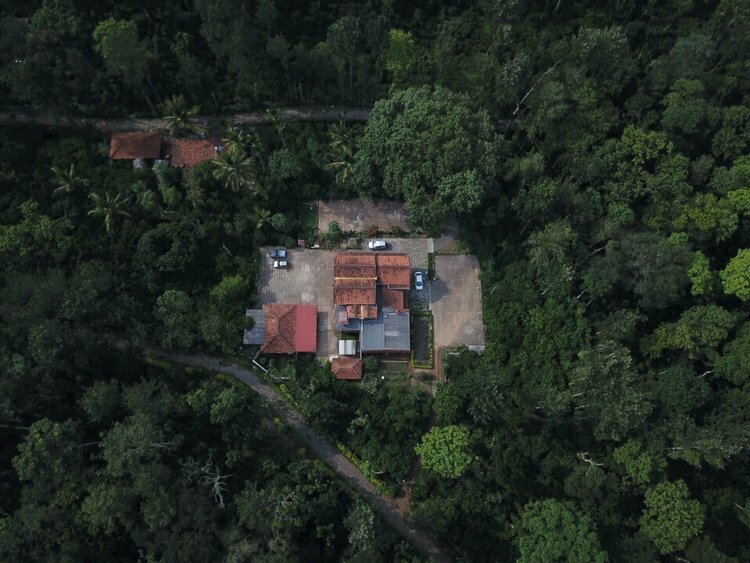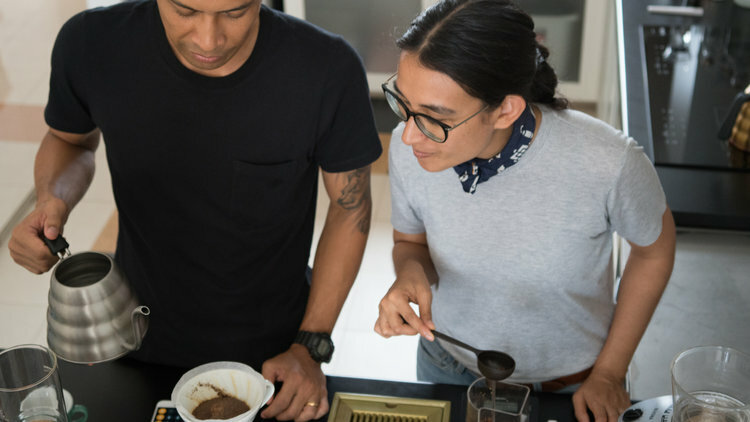Strength, liveliness, and confidence. Catherine - or simply Cat - embodies the same values she looks for in her coffee.
Half Indian, half-Canto, and raised in Vancouver, Canada, Cat boldly blends the best of many worlds. Her journey to specialty coffee as the co-founder of Howl & Kodama began with food and self-healing through diet. A number of chronic illnesses led Cat to overhaul her entire relationship with food. What she found was an inaccessibility to natural products, convoluted traceability, and ubiquity of chemicals and pesticides in our food system. Experiencing the trials of finding natural nourishment made her ask: “How do I make this more accessible to others?”
The answer was practical. Coffee is the second most widely traded commodity in the world (after petroleum) and the most universally consumed beverage. “If I can even make a little dent there, it will have a big impact,” Cat remarks. Coffee farms have been in the family for generations, so Cat and Leo moved to India to embark on a humbling fulfilment of the whole value chain of coffee through her reconnection to her family, coffee, and the environment.
THE WOMEN OF COORG COFFEE
Now living full time in India and working in specialty coffee, we ask Cat about the gendered space of coffee in India. Who really runs specialty coffee - from the farm up until you sell it?
Cat pauses to give a raw, sincere answer:
Women are very involved, but from a cultural/societal organisational way, land is passed down to sons, which has resulted in male domination. Women marry into other families, and their land security comes with the other family. While the law has changed in recent times so land can be passed down to females, reality hasn’t. Now, the woman in me rallies to say hey - why can’t land be passed down to men or women that will best fulfil the roles needed to take care of the land, their families, and the needs of the community?
While you don’t see women front facing or leading the farm, women are so dominant in every family I’ve met in Coorg. They know what’s best for the farm, the animals, and what the impact of a decision will be. The knowledge that this plant, root, or ground powder is what you need for the ailment you have right now - comes from women.
Cat reflects on the value of traditional gender roles as representing more than merely delineating, stark divisions between men and women. “I would love it if the societal norms about women’s domestic roles and on the farms weren’t a battle between the rightful place of genders. It’s not the role of female or male, but why are they important for these families and for farming?” she asks.
“It could be about making sure those roles are fulfilled, and that knowledge is passed on in the right way. It doesn’t matter if this knowledge comes from a woman or a man; I want to teach it to my child, boy or girl. It’s just good human knowledge and that’s what I’m hoping for in the long term - not to be constrained by gender.”



